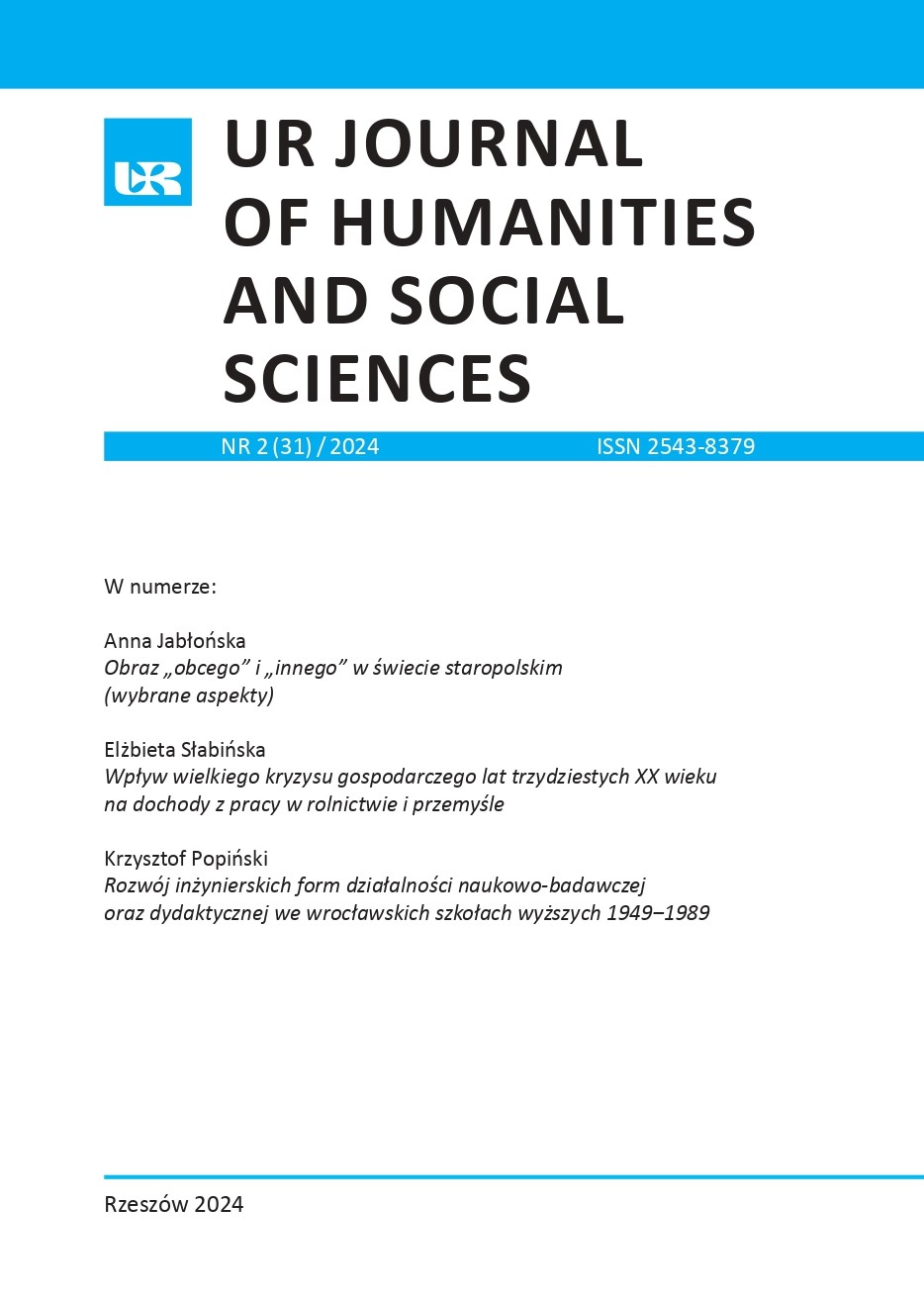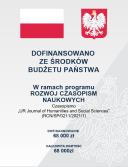The image of foreign and different in the Old Poland (selected problems)
DOI:
https://doi.org/10.15584/johass.2024.2.1Keywords:
Old Polish writings, different, foreign, stereotype, criteriaAbstract
This paper aims to explore the portrayal of persons that were considered foreign or different from the perspective of Old Polish writers. Traditional historical sources including chronicles, memoirs and diaries as well as literary works such as limericks and songs are used.
The authors of the aforementioned pieces encountered people from diverse religions, nationalities and cultures within the country as a result of cross-border contacts, during wars or extended travels. This paper aims to create a detailed image of a person who was foreign/different, highlighting their characteristic features, the influence of religion, ethnicity, social status, physical appearance, behaviour and customs. These foreign or different individuals could have been Protestants, Orthodox Christians, Jews, Hindus, Tatars, Turks, peasants, French, Italians, Germans, Swedes and more. They might have been members of the Polish-Lithuanian Commonwealth, immediate neighbours, citizens of other European states, or even individuals from the Orient or India.
The perception foreignness and difference was highly dependent on the author’s perspective. Stereotypes and myths functioning in the specific social group played a crucial role as did the emotions involved. The image of the foreign/different person is an essential element of the Old Polish worldview and social consciousness.
Downloads
Downloads
Published
How to Cite
Issue
Section
License
Copyright (c) 2024 Wydawnictwo Uniwersytetu Rzeszowskiego

This work is licensed under a Creative Commons Attribution-NonCommercial 4.0 International License.



